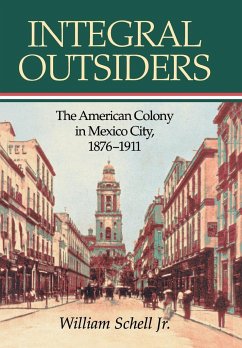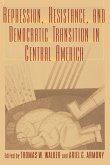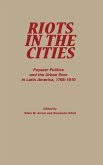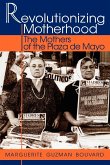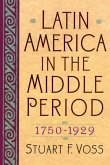In this original and compelling book, William Schell, Jr., examines the largest foreign colony in Mexico during the reign of Porfirio Diaz, 1876D1911. Expatriate Americans constituted the greatest number of technicians, technocrats, consultants, engineers, agronomists, mining specialists, railroad experts, and venture capitalists in Mexico. The influence of these 'integral outsiders' extended far beyond economics and Porfirian efforts to manage the booming era of Mexican modernization. Marriages between Americans and Mexican society women and membership in such organizations as Masonic brotherhoods brought the foreigners into the most important social circles. Integral Outsiders: The American Colony in Mexico City, 1876-1911 contains a colorful history of the Porfiriato through the lens of American participation, including carefully wrought descriptions of the expatriate Americans. These individual biographies provide the narrative with a more human and interesting character, allowing Schell to move beyond the simplistic view of weak, greedy Mexican elites conspiring with powerful, greedy foreign capitalists to amass great wealth while impoverishing the Mexican masses and creating economic underdevelopment. Basing his comments on meticulous research, Schell points out that U.S. influence was hardly a one-way street and that the interaction between U.S. citizens and Mexicans was a complex system of cultural negotiations. He demonstrates convincingly that, while insinuating themselves into Mexican society, Americans thought that they were changing Mexico, and, in so doing, changed themselves. As Schell states, 'Ultimately, then, it may be said that the Porfirian regime got the form of hegemony it sought, and Washington took the sort of hegemony it could get.'
Hinweis: Dieser Artikel kann nur an eine deutsche Lieferadresse ausgeliefert werden.
Hinweis: Dieser Artikel kann nur an eine deutsche Lieferadresse ausgeliefert werden.

